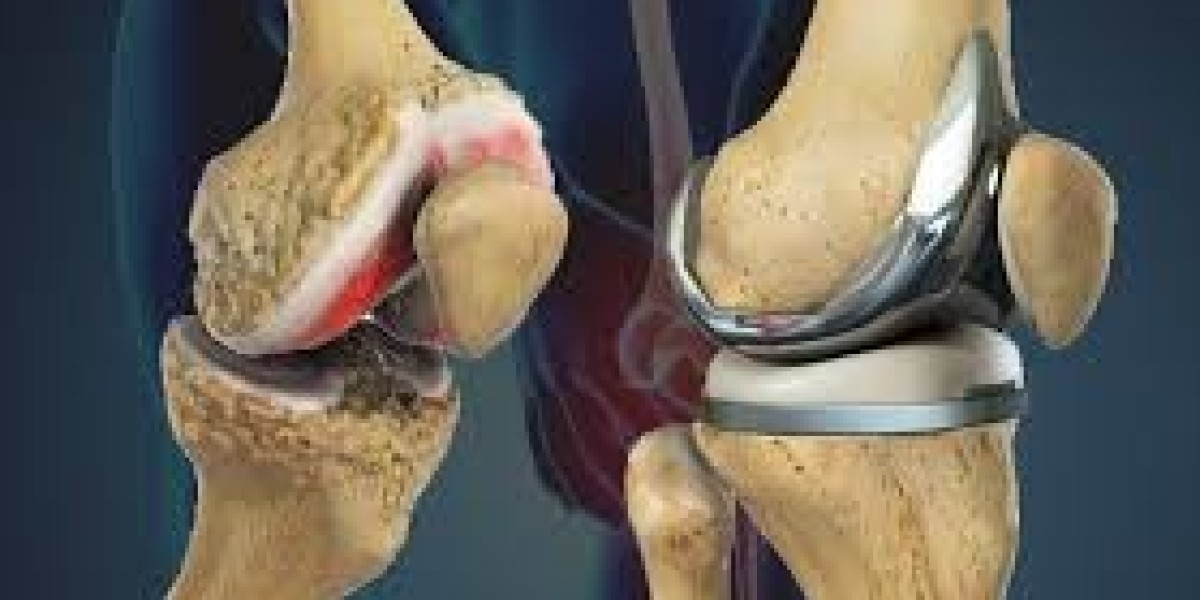Patients frequently report notable increases in mobility and pain alleviation following knee replacement surgery. Nonetheless, there are typical errors that might cause problems or hinder the healing process. Achieving a favorable result and guaranteeing a speedy recovery requires avoiding these errors. Following knee replacement surgery, the following five errors should be avoided:
1. Neglecting Physical Therapy :
Physical therapy is one of the most crucial components of knee replacement rehabilitation. Patients can restore their knee's strength, range of motion, and flexibility by adhering to the recommended physical therapy program. A delayed healing process, stiffness, and decreased mobility might result from skipping or neglecting physical therapy appointments. Following the workout regimen that the physical therapist and healthcare practitioner suggest is crucial.
If the knee joint is not adequately mobilized during surgery, it may become stiff. By strengthening and extending the muscles surrounding the knee, physical therapy helps avoid this. Additionally, therapy helps to improve coordination and balance, which are essential for walking and getting back to regular activities.
During physical therapy, patients may experience early soreness, which can be frustrating, but it's crucial to persevere through it to guarantee good joint healing. If progress appears to be gradual, some patients may also feel demotivated or disheartened. But consistency is essential. Appropriate treatment improves the result and lowers the chance of long-term issues, such as weak leg muscles or restricted knee function.
2. Overexerting or Pushing Too Hard :
While exercising is necessary to rebuild strength, overdoing it is a typical error that can cause recovery to be delayed. In the initial weeks or months following surgery, many patients may push themselves too hard because they are anxious to resume their regular activities. Complications including inflammation, worsened discomfort, or even implant destruction may result from this.
Overdoing exercise or going back to high-impact activities too soon can strain the knee since the body needs time to recuperate. It is best to refrain from jogging, leaping, and carrying large weights until the knee has adequately recovered. As advised by their physician or physical therapist, patients should instead concentrate on low-impact activities like swimming, cycling, or walking. These exercises aid in strengthening the knee without putting it under unnecessary strain.
Excessive swelling brought on by overexertion may also make it more challenging to move the knee or do further rehabilitation activities. Slowly and slowly recovering will lower the chance of damage and produce greater long-term outcomes. In order to prevent pushing through extreme discomfort, which may be a sign that the knee is not prepared for such exercise, patients should always pay attention to their body.
3. Not Following Weight-Bearing Instructions :
Patients are frequently given instructions on when and how much weight to put on their knee in the initial post-surgery phase. Usually, this is accomplished gradually, beginning with partial weight-bearing and progressively increasing to full weight-bearing. Failure to adhere to these recommendations may lead to issues including poor healing, implant misalignment, or tissue injury.
To prevent placing too much weight on the knee, patients may initially require crutches, walkers, or other assistive technology. Since the knee's surrounding bones and tissues are still mending, this is particularly crucial in the early phases of rehabilitation.
It's critical to carefully follow the doctor's weight-bearing recommendations and raise the knee's load gradually as directed. Additionally, until their doctor gives the all-clear, patients should refrain from activities like prolonged standing or unassisted walking.
4. Inadequate Pain Management :
After knee replacement surgery, some discomfort is normal, but pain management is crucial to a speedy recovery. Because they believe they should "tough it out" or that the pain will go away on its own, many patients make the error of undervaluing the significance of pain management. A delayed recovery, decreased engagement in physical therapy, and trouble moving the knee can all result from inadequate pain management.
In order to assist control discomfort, painkillers are usually provided in the early phases of recovery. Non-steroidal anti-inflammatory medications (NSAIDs), opioids, and other painkillers may fall under this category. Patients can progressively cut back on their use of painkillers while their knee recovers, switching to over-the-counter alternatives if needed.
Compression or the use of cold packs can assist decrease swelling and offer further relief in addition to medicine. Leg elevation can also aid in the control of pain and edema. Patients should always discuss any concerns regarding drug side effects or poorly managed pain with their healthcare practitioner.
5. Ignoring Warning Signs :
One of the most critical mistakes to avoid after knee replacement surgery is ignoring warning signs of complications. While some discomfort, swelling, and bruising are normal after surgery, there are certain symptoms that indicate a need for immediate medical attention. Ignoring these symptoms can lead to more serious issues that can hinder recovery or result in permanent damage to the knee.
Warning signs that should not be ignored include:
- Signs of infection: redness, warmth, excessive swelling, or drainage at the surgical site, accompanied by fever.
- Uncontrolled pain: persistent or severe pain that does not improve with medication or rest.
- Deep vein thrombosis (DVT): swelling, redness, and pain in the calf, which can indicate a blood clot.
- Instability in the knee: difficulty walking, a feeling that the knee is "giving way," or persistent instability after the initial recovery period.
If any of these symptoms occur, patients should contact their healthcare provider immediately for further evaluation and treatment. Early detection and intervention can prevent complications from becoming more serious and ensure that the knee continues to heal properly.
Conclusion :
Although total knee replacement surgery is a very effective way to reduce pain and restore function, avoiding common errors is essential to a healthy recovery. The healing process can be adversely affected by skipping physical treatment, overdoing it, disregarding warning signals, not adhering to weight-bearing recommendations, and not managing pain effectively. Patients may get the most out of their knee replacement and experience increased mobility and quality of life by according to the recommended recovery plan, paying attention to their bodies, and getting medical help when necessary.



